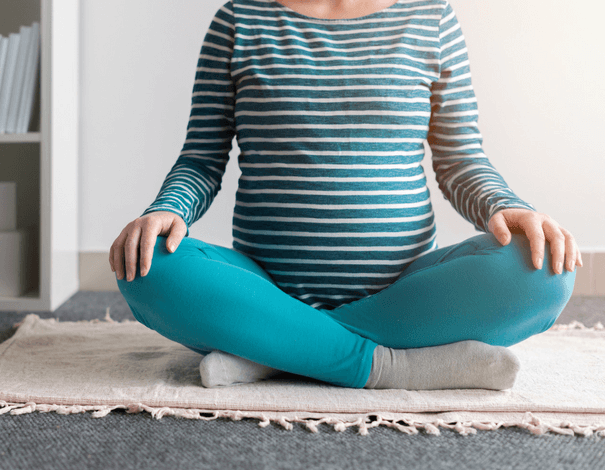Recognizing the First Signs of Pregnancy
There are various signs and symptoms that can appear in the first weeks of pregnancy. Read on to find out the most common of them, and the best way to confirm whether you’re pregnant.What are the most common symptoms in early pregnancy?
After conceiving, your body will undergo various hormonal changes, which trigger certain signs and symptoms right from the earliest weeks of pregnancy. Following are the most common signs and symptoms in the first trimester of pregnancy. Remember, every woman is different, and you may not necessarily experience all of them.
Missed period
The most telling sign is, of course, a missed period. Women who have a very regular menstrual cycle will quickly notice a delay in their period, but for those with a more irregular cycle, it may take longer to detect.
Keep in mind, too, that there are many factors that can impact the onset of menstruation, so a delay of a few days does not necessarily mean you are pregnant.
Fatigue
Fatigue is one of the most common symptoms in the first months of pregnancy. While the exact causes of this fatigue are still unclear, it is believed that hormonal changes, specifically the increase in the hormone progesterone, play an important role.
Fatigue often subsides in the second trimester, only to return in the last trimester when your growing baby takes up more and more space, and sleeping often becomes more uncomfortable.
Breast tenderness
Hormonal changes can make your breasts swell or become more sensitive in the first weeks of pregnancy. The discomfort can be similar to premenstrual symptoms, and usually decreases over time.
Nausea or vomiting
Although it is often referred to as “morning sickness,” nausea during pregnancy can actually occur at any time of the day. It tends to begin around the sixth week of pregnancy and subsides around the twelfth week.
In some women, nausea can trigger vomiting. So long as you are still able to eat and drink, these episodes of vomiting are not dangerous for you or the foetus. That said, they can be distressing and interfere with your daily activities. Fortunately, there are several ways to minimize nausea and vomiting. If these methods are ineffective, be sure to speak to a health professional, who can prescribe medication to relieve this symptom.
Increased need to urinate
Pregnancy causes an increase in the amount of blood in your body. Since urine is produced when blood passes through the kidneys, more blood also means more urine in early pregnancy. Aside from there being more of it, this urine is no different than the urine your body produces when you are not pregnant.
Later in pregnancy, the pressure on your bladder caused by your growing uterus will increase your need to urinate.
Increased vaginal discharge
As a result of hormonal changes and increased blood flow, your body may produce more vaginal discharge than usual in the first weeks of pregnancy. This discharge is whitish, and has no distinctive odour.
If your discharge is accompanied by intense itchiness or a fishy odour, it could be the sign of a vaginal infection, in which case you will need to consult a doctor who can make an accurate diagnosis and prescribe an effective treatment that is safe for your unborn baby.
Vaginal bleeding
Vaginal bleeding can occur in early pregnancy. In the first days of pregnancy, it can be caused by the implantation of the foetus in the uterus, and can resemble a lighter menstrual cycle than usual.
Some pregnant women may experience spotting after sexual intercourse or a gynecological exam. This light bleeding is not dangerous and is due to the fact that the cervix is more fragile during pregnancy.
Heavy bleeding before Week 14 of pregnancy, and any bleeding after Week 14, however, is not normal, and you should consult your health professional right away.

What are the symptoms that can confirm pregnancy?
The mere presence of pregnancy-associated symptoms, including a missed period, does not necessarily mean you are pregnant, as a number of health problems, or even an episode of extreme stress, can trigger many of the same symptoms.
To confirm whether you are pregnant, you have to take a pregnancy test.
When is the best time to take a pregnancy test?
Pregnancy tests detect the presence of a hormone—human chorionic gonadotropin (HCG)— produced by the placenta. However, this hormone is not produced immediately after fertilization; it’s production usually starts only 6 or 7 days later.
To confirm whether you are pregnant, the presence of HCG can be measured in your urine (tests sold at drugstores) or in your blood (analysis prescribed by a health professional).
With pregnancy tests available at the drugstore, it is best to wait at least 7 to 14 days after the date your menstrual cycle was due to start, to ensure that there is enough HCG in your urine, and to increase the reliability of the result. It is also preferable to test your first urine in the morning because, if you are pregnant, this is when your urine will have the highest concentration of HCG.
For maximum efficacy, be sure to carefully read and follow the instructions on the test package, especially the wait time before reading the result. If need be, don’t hesitate to ask your pharmacist for advice.
The test result is positive if it shows “pregnant” or a plus (+) sign or two lines, depending on the test you use.
While a positive result is rarely wrong (false positive), false negatives are possible, especially if the test is done too soon or with urine that is not concentrated enough.
If you think you might be pregnant, even if the test result is negative, wait five days and do another test if you still haven’t got your period.
Is melatonin safe for pregnant women?
Ideally, you should take certain precautions before even getting pregnant, for example, by taking prenatal vitamins with folic acid, avoiding or stopping certain medications, staying away from alcohol, and quitting smoking. That said, it’s not too late to take these measures even if you are already pregnant.
Your pharmacist is there to provide support and guidance through all the stages from preconception to pregnancy and post-delivery!
They can also help if you have had unprotected sexual intercourse and wish to avoid pregnancy, for example, by prescribing emergency oral contraception. Or they can refer you to the appropriate resources if you plan to terminate your pregnancy.
Some pharmacies offer pregnancy and maternity wellness consultations. Feel free to make an appointment with one of their pharmacists for their professional advice. Pharmacists are there to support you, whatever your needs!
The pharmacy services presented in this section are offered by pharmacist owners who are affiliated with Proxim. The pharmacists are solely responsible for the professional activities carried out during the practice of pharmacy.
The information contained herein is provided for informational purposes only and is not intended to provide complete information on the subject matter or to replace the advice of a health professional. This information does not constitute medical consultation, diagnosis or opinion and should not be interpreted as such. Please consult your health care provider if you have any questions about your health, medications or treatment.




